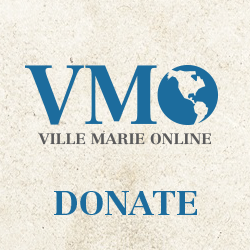
The Word "Community"

By Father John Walsh
The word “community” is bantered about and seems to have lost its meaning. In a religious sense we gather as a community but have we forgotten what it means to act in unity as a community. In Paraguay Pope Francis recalled the need for the common good.
"In every sector of society but above all in public service, there is a need to reaffirm that dialogue is the best means of promoting the common good, on the basis of a culture of encounter, respect and acknowledgment of the legitimate differences and opinions of others."
Then during his Papal visit to Cuba and to the United States he stressed that our achievement is to act for the common good. When he addressed Congress, the Pope urged a spirit of cooperation amongst political leaders:
"You are called to defend and preserve the dignity of your fellow citizens in the tireless and demanding pursuit of the common good, for this is the chief aim of all politics. A political society endures when it seeks, as a vocation, to satisfy common needs by stimulating the growth of all its members, especially those in situations of greater vulnerability or risk.
The challenges facing us today call for a renewal of that spirit of cooperation, which has accomplished so much good throughout the history of the United States. The complexity, the gravity and the urgency of these challenges demand that we pool our resources and talents, and resolve to support one another, with respect for our differences and our convictions of conscience."
In our culture the aspirations of the individual are stressed and community is frequently an afterthought. It need not be!
On Yom Kippur, a time of atonement and forgiveness, I attend the Shaar Hashmayim Synagogue where my good friend Gideon Zelermyer, the Cantor, sings Kol Nidre, the prayer recited in the synagogue at the beginning of the evening service. Rabbi Adam Scheier delivered a sermon in 2022 which was reprinted in this year’s booklet for Yom Kippur. Back home, I read the sermon and it stimulated my thoughts about community. I share them because they are so apropos for all religious communities.
It is the responsibility of a community to effectively model the ways in which the individual can reach spiritual fulfillment.
In the Catholic community, the Catechumenate (Rite of Christian Initiation of Adults) is founded on community as the catechumen on three different occasions submits to a scrutiny before the community. It is the community that calls each individual to conversion. Faith leads to “mystagogia” the on-going deepening of the understanding and living out of one’s faith in community.
Rabbi Scheier goes on to say:
Holy to God. This is the essence of community. A mature outlook understands how important community is. It understands how we need each other. Spirituality is never just for me. It is for you too.
The Jewish people have a great deal to teach us about community. We are to be holy to God. A Jew is not an individual; she or he is the community. Did Vatican II not redefine the Catholic community as subsisting in the People of God? Prayers in both our liturgies are expressed in the plural, “Let us pray.” Together we pray that the Holy Spirit transform the gifts of bread and wine. We have sinned and we must recognize the sinful social structures everywhere, even in the Church. Both of us learn from our traditions. Our past requires forgiveness and atonement for us to go forward and embrace holiness. There is no hierarchy when it comes to holiness. Each of us is called to holiness which we celebrate in community.
Last Night at the Gayete

|
|
|
|
|
|
The Centaur Theatre's - season is drawing to a close with its final production of Last Night at the Gayety, a musical comedy by Bowser & Blue which runs until May 22nd. |
|
|


